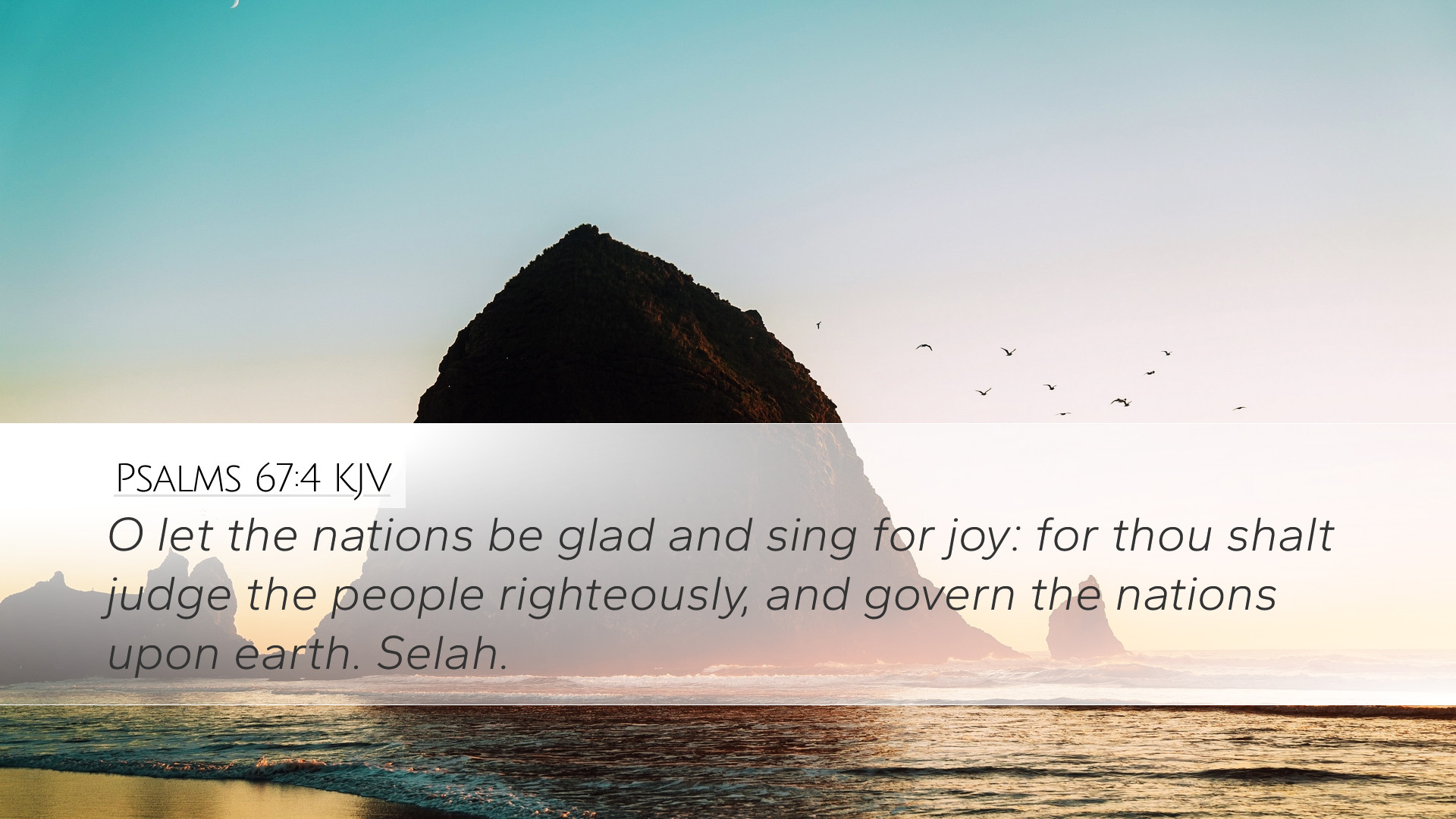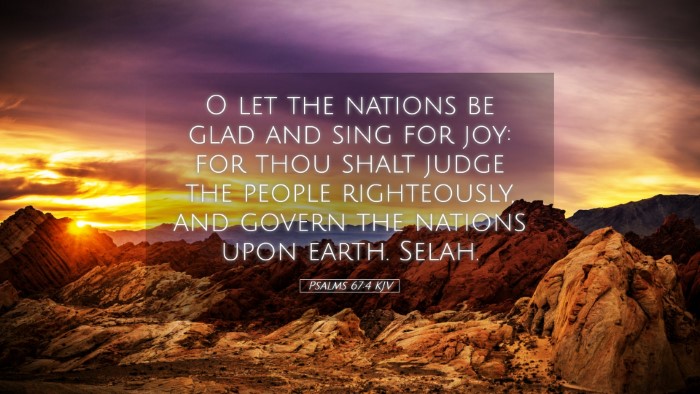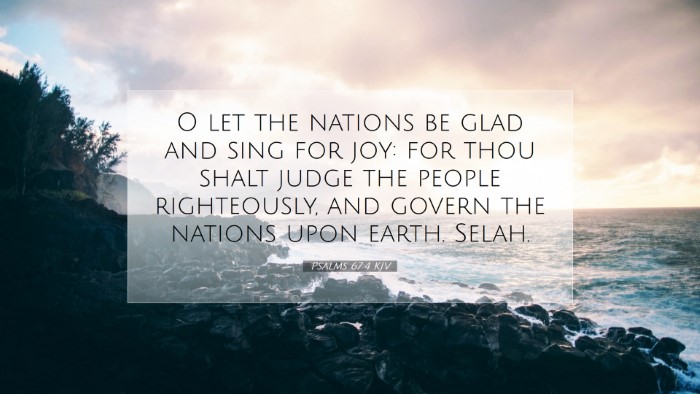Psalms 67:4 Commentary
Verse Text: "O let the nations be glad and sing for joy: for thou shalt judge the people righteously, and govern the nations upon earth."
Introduction
The Book of Psalms is a collection of prayers, praises, and worship directed toward God, reflecting both personal and communal sentiments. Psalm 67 stands as a universal prayer that emphasizes the inclusivity of God's mercy and the joy it brings to all nations. This commentary synthesizes insights from respected public domain commentaries including those by Matthew Henry, Albert Barnes, and Adam Clarke, providing depth and understanding especially useful for pastors, students, theologians, and scholars.
Context and Structure
Psalm 67 is a brief yet powerful psalm that forms part of the collection of hymns and prayers meant for corporate worship. The psalm can be seen as a missionary declaration calling for the world to acknowledge and celebrate Yahweh's sovereignty.
- Verses 1-2: Invocation for God's mercy and blessing.
- Verse 3: A call for all nations to praise God.
- Verse 4: An affirmation of divine judgment and governance.
Theological Themes
Universal Joy
Henry emphasizes that the intention behind the psalm is that all nations should rejoice in God's justice and righteousness. The call for nations to be glad suggests a grand vision of joy that transcends ethnic and geographical boundaries.
Divine Governance
Albert Barnes notes the significance of God's sovereign governance. The phrase "govern the nations upon earth" indicates that God is intimately involved in the affairs of humanity, guiding and judging with righteousness. This is a comforting truth for believers, affirming that history is not aimless but under divine oversight.
Righteous Judgment
Clarke posits that the 'righteous judgment' of God should prompt nations to worship Him. He remarks on the moral implications of God’s governance, which promotes peace and justice among people. The psalmist anticipates that when nations witness God’s fairness, it will evoke spontaneous praise and celebration.
Commentary Insights on Key Phrases
"Let the nations be glad and sing for joy"
Here, the psalmist invokes a collective response from the nations. Both joy and singing are expressions of gratitude and acknowledgment of God's blessings. Henry suggests that true joy emanates from understanding God's character and His acts among people.
"Thou shalt judge the people righteously"
The righteousness of God's judgment is a cornerstone of this verse. Barnes highlights the assurance believers have in God’s equitable nature. Unlike human systems often riddled with corruption, God's judgments are consistently fair and saturated with truth.
"Govern the nations upon earth"
The promise that God will govern nations underlies the entire psalm's theology. Clarke interprets this governance as both a present reality and a future hope, forecasting a day when God's rightful rule will be fully recognized by all. This anticipation serves as a motivator for evangelism and missions within the church.
Practical Applications
Psalm 67:4 encourages believers to embrace a worldview that applauds God's universal sovereignty and justice. Here are some applications:
- Encouragement to Evangelize: Understanding God’s desire for joy among all nations motivates believers to share the Gospel.
- Prayer for Justice: The psalm inspires believers to pray for just and righteous governance in their own nations.
- Worship as a Response: The natural response to God’s righteousness and governance is communal worship, calling individuals and congregations to recognize His glory in song.
Conclusion
Psalms 67:4 encapsulates a profound theological truth about God's nature as a just ruler who invites all nations to rejoice in His governance. The insights drawn from Matthew Henry, Albert Barnes, and Adam Clarke underscore the unchanging relevance of this passage for believers today, highlighting themes of universal joy, divine oversight, and the importance of righteous judgment. As such, this psalm not only serves as a liturgical piece but as a powerful call to action for the church, urging collective worship and a commitment to justice as a reflection of God’s character.


